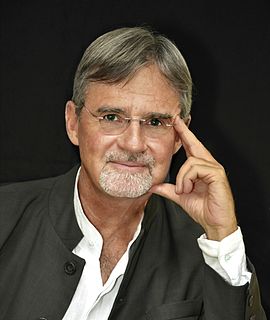A Quote by Ann Coulter
Reagan took an approach to the Cold War dramatically different from any other US President. To wit, he thought we should win. This was a fresh concept. At the time, it was widely ridiculed as a dangerous alteration of US policy. Only after it worked was Reagan's dangerous foreign policy recast as merely a continuation of the policies of his predecessors.
Quote Topics
Related Quotes
We were really helped when President Ronald Reagan came in. I remember non-commissioned officers who were going to retire and they re-enlisted because they believed in President Reagan. That's the kind of President Ronald Reagan was. He helped our country win the Cold War. He put it behind us in a way no one ever believed would be possible. He was truly a great American leader. And those of us in the Armed Forces loved him, respected him, and tremendously admired him for his great leadership.
Ronald Reagan was one of our great foreign policy Presidents. He did not come from the Senate. He did not come from the foreign policy world. He was a governor, but his resolve, his clarity of purpose, his intelligence, his capacity to deal with complex issues and solve tough problems served him extremely well, and if I were elected President, I hope I could rely upon those same qualities.
Those who remember Washington's cold war culture in the 1980s will recall the shocked reactions to Reagan's intervention. People interested in foreign policy were astonished when in 1985 he met alone at Geneva - alone, not a single strategic thinker at his elbow! - with the Soviet Communist master Gorbachev.
In 1945, at the beginning of the Cold War, our leaders led us astray. We need to think of the Cold War as an aberration, a wrong turn. As such, we need to go back to where we were in 1945 - before we took the road to a permanent war economy, a national security state and a foreign policy based on unilateralism and cowboy triumphalism.
So what we have is an American foreign policy that is inextricably linked to domestic matters. It is very dangerous for a politician who desires nothing more than to stay in office to address the mindset that any change in policy is appeasement. And Americans will accept that for a certain amount of time.
In 1980, evangelicals overwhelmingly elected a candidate who was a known womanizer when he was in Hollywood. He would be the first divorced president in U.S. history. His name was Ronald Reagan. And when evangelicals voted for Reagan, they weren't endorsing womanizing. They weren't endorsing divorce. They were endorsing Reagan's policies.
I have said there are three principles that should be followed. One, we should maintain the "one China" policy that every American president has articulated, including President Reagan. Secondly, we should make clear that we want a peaceful resolution. And three, Taiwan should not challenge that arrangement in a way that will provoke a conflict. Those are three perfectly clear principles. I haven't used any of the other slogans.
































